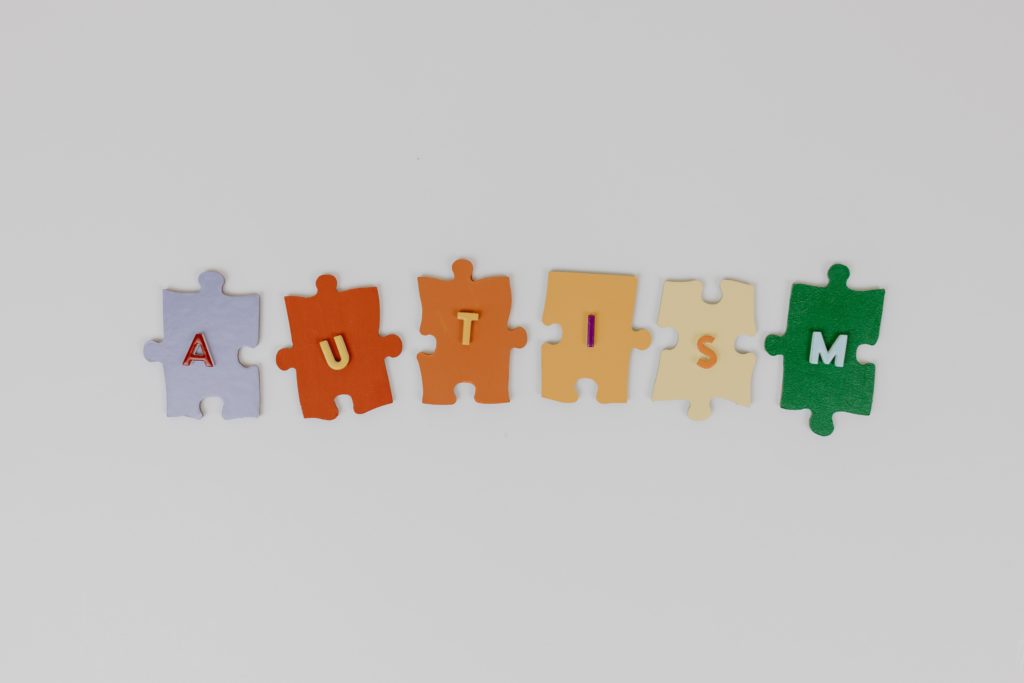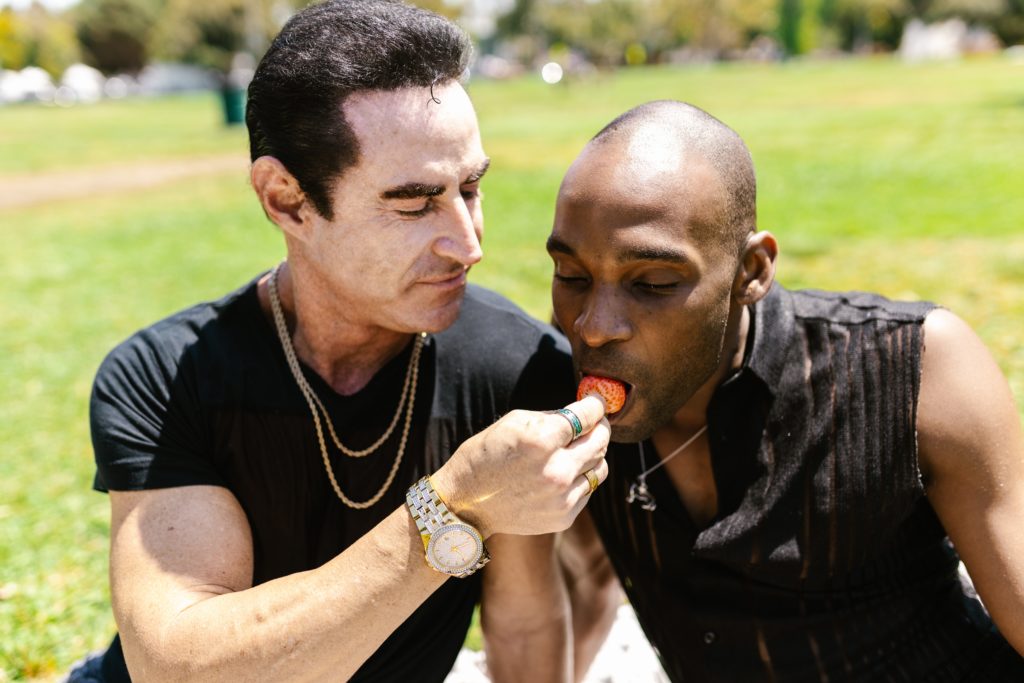Autism & Romantic Relationships: What to Expect

Featured Image by Ba Tik, Pexels.com
Updated on 26th June 2023
Relationships can be confusing and complex for people on the autism spectrum. Find out more about how autism can affect relationships and some top tips for being in a relationship with someone who has autism.
What is Autism?

Image by Tara Winstead, Pexels.com
Autism is a lifelong neurological condition that affects how people perceive the world and interact with others. It typically appears during early childhood and people can continue to experience signs of it as they become older.
Autism can affect a person’s social skills, communication skills, relationships, and self-regulation. It is often referred to as a “spectrum condition” because it affects people differently in varying degrees.
Before 2013, people with non-verbal autism or Kanner’s autism/classic autism were on the lower end of the spectrum, whereas people with high-functioning autism (HFA) or Asperger syndrome were on the higher end of the spectrum. Since 2013, people who displayed symptoms of these types of autism were given the official diagnosis of autistic spectrum disorder (ASD) or autism.
How Does Autism Affect Relationships?

Image by Trinity Kubassek, Pexels.com
In the Australian Netflix reality series ‘Love on the Spectrum,’ participants have found the following aspects of dating and relationships challenging:
- Struggling with social skills
- Worrying about neurotypical people not wanting to date them or be in a relationship with them
- Spacing out in conversations
- Finding a date too formal
- Feeling as if they go too far with questions that they ask their date or partner
- Not feeling ready for a relationship
- Wanting to be friends with someone rather than a romantic partner
- Things going wrong or “triggering [their] flight reflex”
- Never having had a partner before
- Fearing that others are not interested in them
- Never being in love before
- Feeling jealous of a sibling, another relative or a friend having a partner
- A person still living with their parents being embarrassed about marrying someone
- Not yet knowing what intimate love is
- One person in the relationship might be clingy towards the other
- A fear of rejection
- Experiencing panic attacks during dates
- People who date liking each other rather than loving each other
- Not making eye contact during a date
- Preferring not to discuss previous dates
- Finding dating and relationships confusing
Can Autistic People Feel Love?

Image by Rodrigo Souza, Pexels.com
Love is a complex emotion that can be experienced by individuals with autism, just as it is by individuals without. While love is expressed and experienced differently from person to person, those with autism are fully capable of forming deep emotional connections. These can include love for their family, friends, romantic partners, or even interests and hobbies.
Autistic individuals may express and experience love in unique ways, influenced by their individual strengths, challenges, and sensory sensitivities. Some may find it challenging to express love verbally or through typical social cues, but they can still demonstrate affection and care through their actions, interests, and consistent support.
That said, autism is a spectrum, and each individual’s experience and expression of love may vary. Understanding and accepting these differences can foster inclusive and meaningful relationships with autistic individuals, where love can be both given and received.
Autism & Emotions: What You Need to Know

Image by Gary Barnes, Pexels.com
Autistic people’s difficulty with expressing emotions can make relationships difficult for them to navigate. Although people with autism have the same feelings as everyone else, their feelings can be more intense than those neurotypical people express. Since people with autism find it hard to show or express their emotions in the ways that are socially expected of them, they are often misinterpreted as apathetic.
Because autistic people might have trouble understanding social rules, the way others deliver words, or body language, they can sometimes express their feelings inappropriately. These include attraction and romantic feelings. People on the spectrum need clear explanations of what is appropriate and what is not.
For example, a person with autism might keep inviting someone on a date when they have already refused a few times. This might be because the other person has made an excuse such as, “I’m busy this weekend,” instead of saying, “No thank you.” The person with autism is confused because they assume that the person might still want to go on a date with them, albeit at another time.
It is advised that if the autistic person asks the other person on a date and the other person says, “No,” the autistic person doesn’t ask them out on a date again. If the other person makes an excuse twice, the autistic person doesn’t ask them out again.
Emotional Dysregulation in Relationships

Image by Keira Burton, Pexels.com
People with autism who are in relationships may experience emotional dysregulation. Emotional dysregulation is described as “an emotional response that is poorly regulated and does not fall within the traditionally accepted range of emotional reaction.”
An example of how emotional dysregulation affects a relationship is when a partner behaves in an impulsive manner by making quick decisions, such as suddenly spending some time away from the other person when angry rather than confronting the issue.
Another example of how emotional dysregulation can affect relationships is when the couple have frequent misunderstandings that are difficult to recover from. For instance, if they have a disagreement at the beginning of a meal, they worry about the rest of the meal being stressful and unpleasant.
Can People with “High-Functioning Autism” Have Romantic Relationships?

Image by Andres Ayrton, Pexels.com
High-functioning autism (HFA) is an informal term to describe an autistic person who can speak, read, write, and perform basic life skills such as eating and dressing. People with HFA can also live independently.
Some people do not like the term, “high-functioning autism,” for the following reasons:
- Intelligence is not a good estimate of functional levels in people diagnosed with autism.
- It is no longer an official diagnostic term in diagnostic manuals.
- The term is inaccurate because it comes with assumptions of an individual’s abilities that may not match their capabilities.
- Because a person has typical or expected intellectual abilities, this does not mean that they have good functional skills for their age.
- The term is also outdated.
While it is possible for people with HFA to have romantic relationships, they can be interpreted as introverts. People with HFA who are interpreted this way can find too much interaction with the outside world overwhelming.
People who are dating, whether they have autism or not, are encouraged to be patient with the person who has HFA. The person with HFA may find it difficult to decide which restaurant to go to with their date. Both people who are dating must ensure they are both always on the same page. They should also discuss how slow or fast they want their relationship to go.
Research has shown that clinical experience has identified that most people with HFA would like a romantic relationship. There is, however, remarkably little research examining this aspect of autism spectrum disorders or strategies to facilitate successful relationships.
Since people with HFA have practised relationship skills with relatives and friends for many years, they can apply these abilities to achieve a successful romantic relationship.
How Can You tell if an Autistic Person Has Romantic Feelings?

Image by Jasmine Carter, Pexels.com
Determining if an autistic person has romantic feelings can be challenging, as individuals with autism may have difficulty expressing and interpreting emotions and social cues in typical ways. However, here are some indicators that may suggest romantic feelings:
- Verbal communication: The person may explicitly express their romantic interest or affection.
- Increased attention and interest: They may show heightened interest in the other individual. They might initiate conversation, seek opportunities to spend time together or display interest in the other person’s life and interests.
- Nonverbal cues: While interpreting nonverbal cues can be difficult for individuals with autism, they may display signs of romantic interest, such as increased eye contact, smiling, or leaning towards the person when interacting.
- Actions or gestures: They may engage in acts of kindness, offer assistance, or give thoughtful gifts to demonstrate their affection towards the other person.
Open and honest communication and taking into account the person’s unique communication style can help establish a clearer understanding of their romantic feelings.
How Does Autism Affect Intimacy in Sexual Relationships?

Image by RDNE Stock project, Pexels.com
Intimacy is the sharing of emotional, cognitive, and physical aspects of oneself with those of another individual. People with autism often have problems with rigidity and the need for repetition, which may limit the spontaneity and playfulness of sexual contact. Sensitivity to physical contact may also cause anxiety for those who have autism. The inability to read the thoughts, feelings or expressed sensations of one’s partner can lead to miscommunication, painful experiences whether they are physical or emotional, and/or shame and guilt.
Individuals with autism have the same human needs for intimacy and relationships as anyone else. The self-identification of these needs may, however, develop later for people with autism as opposed to their neurotypical peers. People with autism may also express these needs differently based on their sexual knowledge, beliefs, and values. The understanding of implicit dating rules and the hierarchy of sexual intimacies may become potential barriers for individuals with disabilities, particularly those who have autism. Individuals with autism have found attending focus groups beneficial for their understanding of intimacy in sexual relationships.
There are several options for people with autism to have intimate relationships. These include individuals who live alone, those who live with one other person or several more, and those who are already in a relationship or married.
Tips for Being in a Relationship with Someone Who has Autism

Image by mentatdgt, Pexels.com
- If the person with autism finds maintaining eye contact difficult, encourage them to focus on your nose or forehead instead for example.
- Ask your partner open questions, for example, “What are your plans for this weekend?”
- Offer to buy your partner a drink on a date.
- Let your potential partner come to you when they are ready.
- Begin a casual conversation and find common interests.
- Use a common interest as inspiration for a dating activity.
- Exchange contact information.
- Determine if both of you would like to go on further dates.
- Learn about autistic spectrum disorder (ASD) and find out how it can affect your partner.
- Recognise and address sensory needs and issues with your partner.
- Find outlets to unwind whether together or individually.
- Seek professional advice and support for relationships if you need it. In ‘Love on the Spectrum,’ several participants have taken advice from Jodi Rodgers, a dating coach.
What Are the Benefits of Dating Someone with Autism?

Image by Liza Summer, Pexels.com
People with autism can display the following strengths that make them beneficial for dating and relationships:
- Being able to bluntly verbalise what is on their mind, such as how they find the dating experience.
- Asking honest questions, such as, “Are you happy with this date?”
- Having a higher emotional capacity than those who do not have ASD.
- Being loyal, i.e. having a slim chance of cheating on their partner.
- Noticing small details about their partner that other people won’t notice.
- Awareness of what their partner likes, such as a specific brand of chocolate bar, and giving them gifts of these things.
- Being very pure-hearted, i.e., very understanding towards their partner.
- Patience, such as happily waiting for their partner to finish their drink.
If you think you might have autism, try taking our online autism test to see if you have any traits.




